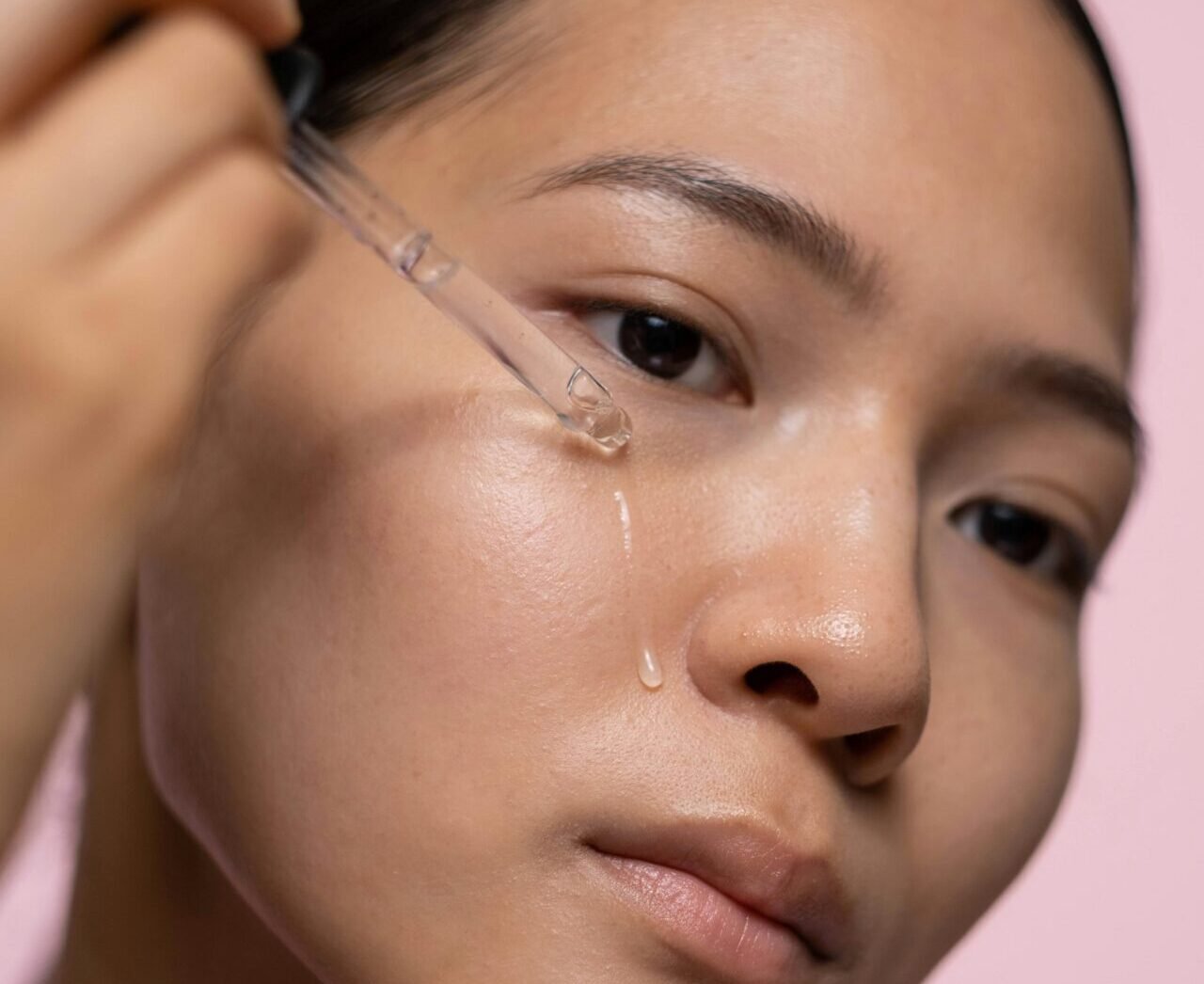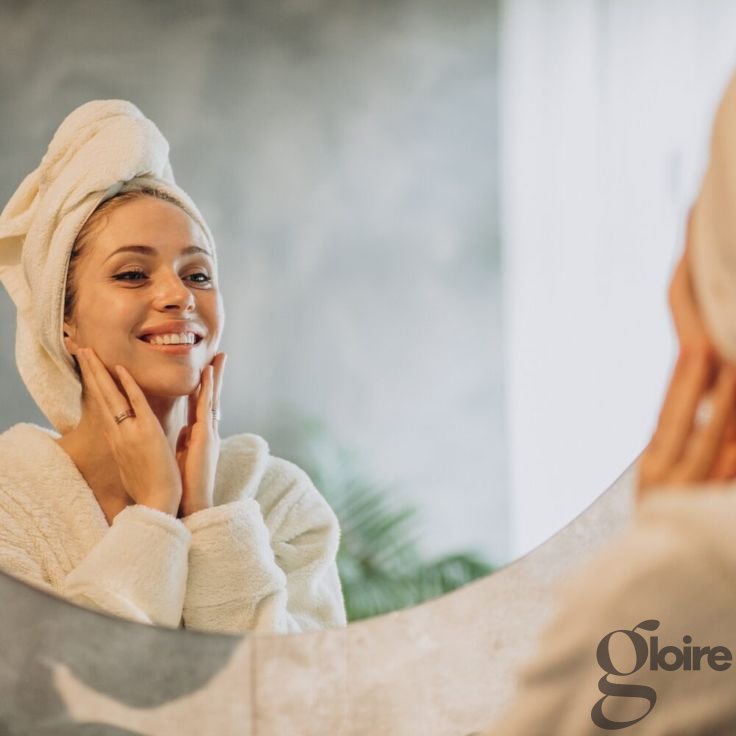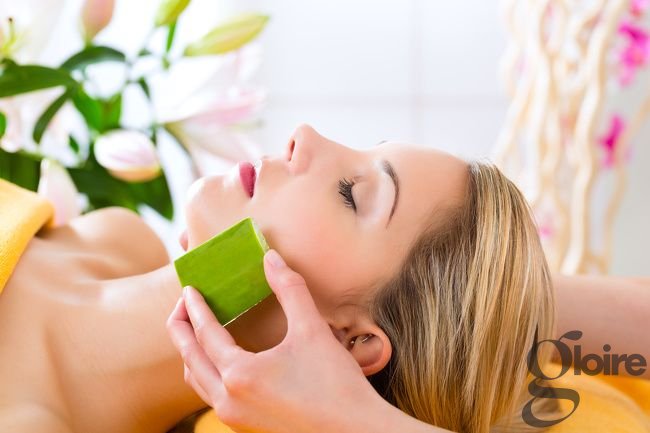Why Skin Hydration Matters
Skin hydration is vital for maintaining elasticity, preventing premature aging, and achieving that coveted glow. Dehydrated skin often appears dull, tight, and prone to fine lines. Proper hydration supports the skin’s natural barrier, helping to fend off environmental stressors.
Key Benefits of Skin Hydration:
- Improved elasticity and resilience.
- Reduction in dryness and flakiness.
- Enhanced natural glow and texture.
- Protection against damage caused by free radicals.
- Prevention of common skin conditions like eczema and acne.
The Science of Internal Hydration
Water: The Cornerstone of Skin Hydration
Water constitutes up to 64% of your skin, highlighting its critical role in maintaining moisture levels. Drinking sufficient water improves skin density and elasticity while flushing out toxins.
- Recommended Water Intake: Aim for at least 8-10 glasses (2-3 liters) daily. Adjust based on physical activity and climate.
Foods That Hydrate Skin
Certain water-rich foods boost skin hydration. Incorporate the following into your diet:
- Cucumber: 95% water and contains silica, which boosts collagen.
- Watermelon: Rich in vitamins A, C, and E, along with hydration.
- Oranges: High in water and antioxidants like vitamin C.
- Lettuce: A low-calorie option that’s over 95% water.
- Zucchini: Contains lutein, which promotes skin health.
Role of Electrolytes
Electrolytes like sodium, potassium, and magnesium help balance your body’s hydration levels. Include foods like bananas, coconut water, and leafy greens in your diet.
Nutrients for Skin Hydration
Omega-3 Fatty Acids
Omega-3s strengthen the skin’s barrier, reducing water loss and promoting hydration.
- Sources: Salmon, walnuts, flaxseeds, and chia seeds.
Vitamin C
This antioxidant supports collagen production and retains moisture.
- Sources: Citrus fruits, strawberries, bell peppers, and broccoli.
Hyaluronic Acid-Rich Foods
Hyaluronic acid holds water within the skin, ensuring a plump, youthful appearance.
- Sources: Bone broth, soy-based products, and sweet potatoes.
Zinc
Zinc regulates oil production and prevents dryness.
- Sources: Oysters, pumpkin seeds, and chickpeas.
Lifestyle Habits for Skin Hydration
Regular Exercise
Exercise increases blood flow, delivering oxygen and nutrients to the skin, promoting hydration.
- Tip: Engage in moderate-intensity workouts like yoga or brisk walking for 30 minutes daily.
Sleep and Skin Hydration
Sleep allows your skin to repair itself. Poor sleep can lead to dehydration and dullness.
- Recommendation: Aim for 7-9 hours of quality sleep nightly.
Avoid Over-Cleansing
Excessive cleansing strips the skin of natural oils, leading to dehydration.
- Advice: Use gentle, pH-balanced cleansers to maintain the skin’s natural barrier.
Limit Alcohol and Caffeine
Both are diuretics, which can dehydrate your body and skin.
- Tip: For every cup of coffee or glass of wine, drink an extra glass of water.
How to Treat Dry Skin Internally
Herbal Teas for Skin Hydration
Herbal teas hydrate and offer additional benefits:
- Chamomile Tea: Soothes inflammation.
- Green Tea: Rich in antioxidants that combat aging.
- Rooibos Tea: Reduces redness and dryness.
Probiotics and Gut Health
A healthy gut improves nutrient absorption, directly influencing skin hydration.
- Probiotic Foods: Yogurt, kefir, kimchi, and sauerkraut.
Adaptogens
Adaptogens like ashwagandha and holy basil help the body cope with stress, reducing dehydration caused by cortisol.
Hydration with Natural Infusions
Infuse water with fruits like lemon, cucumber, and mint to enhance flavor and increase water intake.
How to Hydrate Skin Naturally
DIY Hydrating Drinks
- Aloe Vera Juice: Packed with vitamins that nourish skin.
- Coconut Water: Hydrates and replenishes lost electrolytes.
- Berry Smoothies: Combine water-rich fruits with yogurt for a hydration boost.
Oils for Internal Hydration
Healthy fats improve skin’s moisture retention.
- Options: Olive oil, avocado oil, and coconut oil.
The Role of Collagen Supplements
Collagen supports skin elasticity and hydration.
- Tip: Opt for hydrolyzed collagen peptides for better absorption.
Common Myths About Skin Hydration
- Myth: Drinking more water directly hydrates your skin.
- Fact: While water is essential, balanced nutrition and lifestyle habits are equally crucial.
- Myth: Oily skin doesn’t need hydration.
- Fact: All skin types require hydration to maintain balance and health.
- Myth: Skincare products alone can hydrate your skin.
- Fact: True hydration starts from within.
Practical Tips for Facial Hydration
- Consume Antioxidant-Rich Foods: Blueberries, spinach, and green tea.
- Opt for Hydrating Beverages: Coconut water and herbal teas.
- Incorporate Supplements: Hyaluronic acid and collagen.
- Eat Balanced Meals: Include healthy fats, proteins, and complex carbohydrates.
Further Reading:
- How to Repair a Damaged Skin Barrier
- 5-Step Morning and Nighttime Skincare Regimen for Dry and Dehydrated Skin
- Dry Skin: Causes, Symptoms, and Treatments
- Menopause Skin Care Tips
- How to Achieve Korean Glass Skin
Conclusion
Hydrating your skin and face naturally from the inside involves a holistic approach. By combining proper hydration, a nutrient-rich diet, healthy lifestyle habits, and addressing internal imbalances, you can achieve radiant, well-hydrated skin. Remember, consistency is key. Start incorporating these tips today and enjoy long-lasting results.








